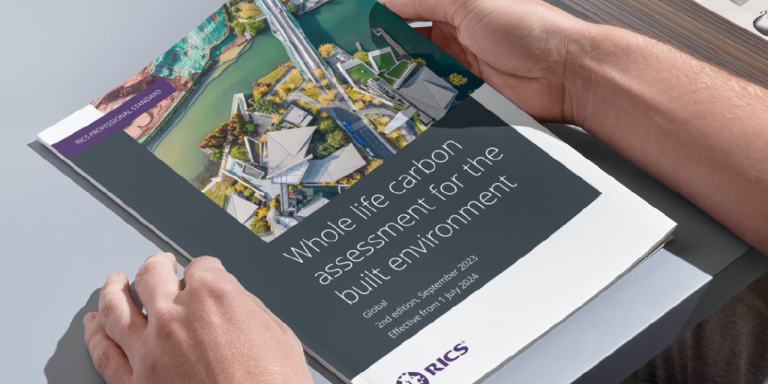UKGBC Launches Major Industry Task Group on Net Zero Carbon Buildings

We are proud to have Principal, Rick Wheal represent Introba (formerly Elementa Consulting) as a task group member for UK Green Building Council’s Advancing Net Zero campaign, helping to develop an industry-led definition for Net Zero carbon buildings.
“The UK Green Building Council (UKGBC) has launched a new task group which will develop an industry-led definition for net zero carbon buildings. The task group will bring together over 30 experts from across the building value chain and is being supported by twelve leading industry bodies.
Following the Paris Climate Agreement and the recent IPCC special report, global attention has turned to achieving net zero emissions to avoid the worst impacts of climate change. In response, a global campaign is being led by the World Green Building Council which is calling for all new buildings to be net zero carbon in operation by 2030 and all existing buildings to achieve this standard by 2050.
The new UK task group will examine what net zero carbon will mean for new buildings, including how they operate in-use. The aim is to build industry consensus on a definition for net zero carbon buildings, which can then be used to inform project designs, reporting initiatives, planning requirements and building regulations. An industry consultation on the task group proposals will be opened in February, with the final output published in spring 2019.
The task group is being facilitated by UKGBC as part of its Advancing Net Zero programme which is aiming to drive the transition to a net zero carbon built environment. The programme is supported by Lead Partner the Redevco Foundation and Programme Partners BAM Construct UK, Berkeley Group, Grosvenor Britain & Ireland and Hoare Lea.
Richard Twinn, Senior Policy Advisor at UKGBC, who will be facilitating the task group said:
“The construction and property industry is ready to make its contribution to the Paris Climate Agreement and start delivering net zero carbon buildings. But there is still a lack of clarity about what a net zero carbon building means in practice.
“This initiative is aiming to move beyond discussions about specific tools and policies towards buildings that work as intended and achieve genuine net zero carbon. We are seeking to create an agreed industry-led definition for net zero carbon buildings in the UK, to ensure we are all working towards the same outcomes.”
The task group is being supported by the following trade associations, professional institutes and non-profit organisations:”
Better Buildings Partnership (BBP)
British Property Federation (BPF)
Building Services Research and Information Association (BSRIA)
Chartered Institute for Building Services Engineers (CIBSE)
Good Homes Alliance
London Energy Transformation Initiative (LETI)
Renewable Energy Association (REA)
Revo
Royal Institute of British Architects (RIBA)
Royal Institute of Chartered Surveyors (RICS)
Sustainable Energy Association (SEA)
Solar Trade Association (STA)
The task group includes representatives from the following organisations:
Acclaro Advisory
AECOM
Allies and Morrison
Arup
Atelier Ten
BAM Construct UK
Berkeley Group
Bioregional
BRE
BuroHappold Engineering
Carbon Credentials Energy Services
Cundall
Derwent London
EcoEnergy Insights, UTC
Greengage Environmental
Grosvenor Britain & Ireland
Haringey Council
Hawkins Brown Architects
Hoare Lea
Hodkinson Consultancy
HTA Design LLP
Introba
JLL Ltd
Kingspan Insulation Ltd
Landsec
Lendlease
Max Fordham LLP
Redevco
Skanska
Skidmore, Owings & Merrill LLP
Targeting Zero LLP
The Carbon Trust
Turley
Twinn Sustainability Innovation
Verco
Willmott Dixon
Related News
-
Mar 21, 2024
Bendigo Law Courts Set Environmental Benchmark with Green Star Rating
SustainabilityProjects & Work -
Nov 7, 2023
-
Oct 20, 2023
Hidden Emissions of the Cloud: Examining Embodied Carbon and Cost Impacts of Data Center Cooling Technologies
Insights & PerspectivesSustainability


